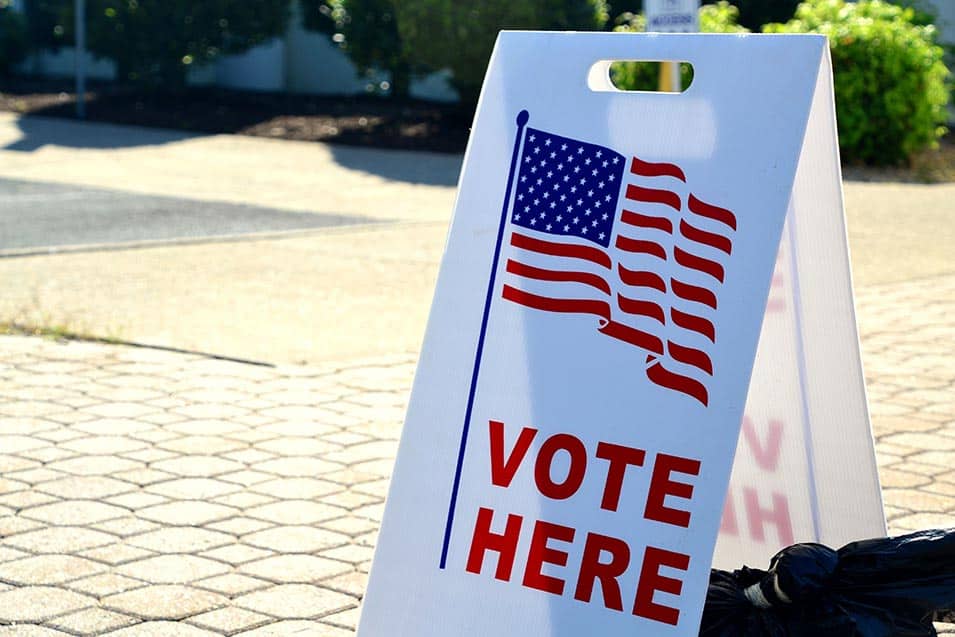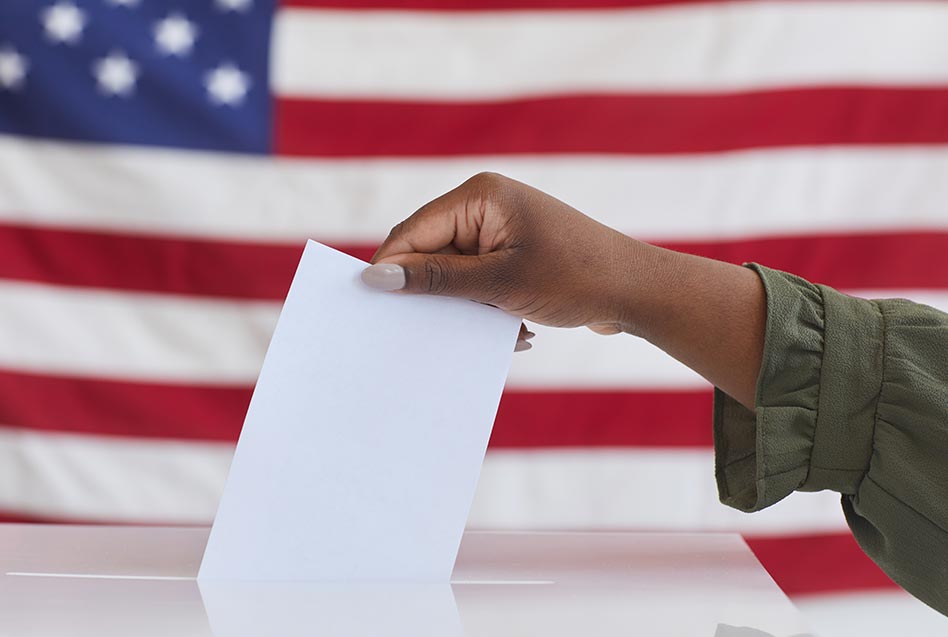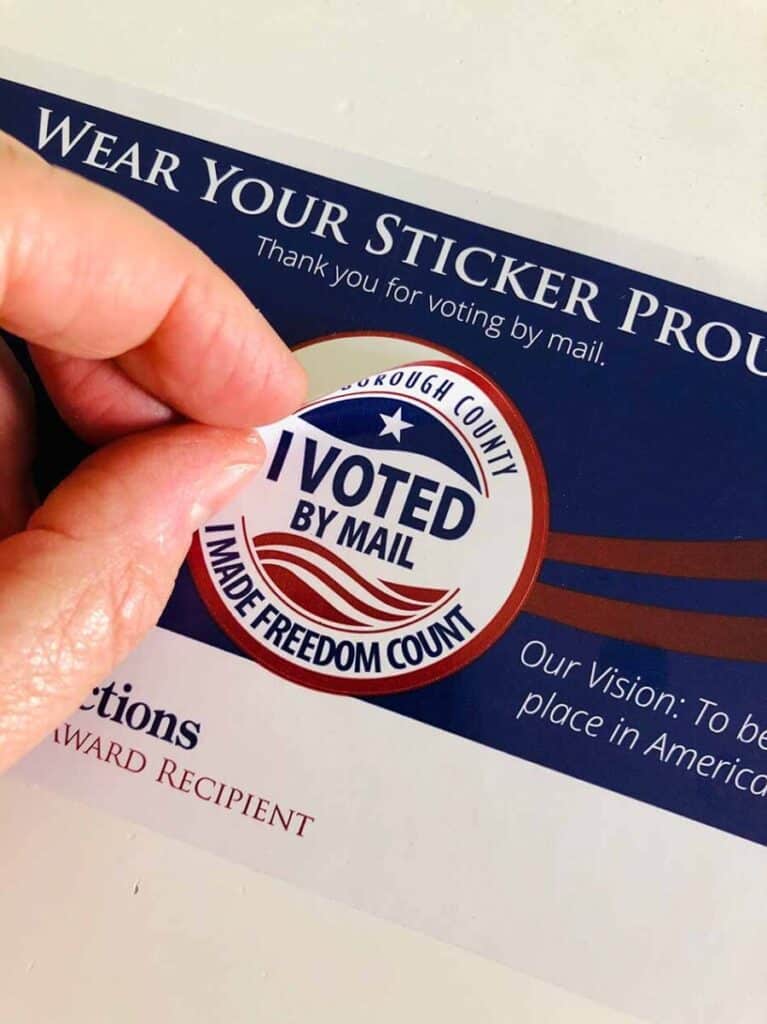
Voting and having access to polling are important. However, people with disabilities can have a difficult time accessing polling locations and exercising their right to vote.
Adults with disabilities can and should vote. There is specific legislation that describes voting rights for adults with disabilities. From the Americans for Disabilities Act to the Voting Rights Acts, adults with disabilities have the right to vote and should take action to report problems if this right is being impeded.
Voting is a right; however, it is not always easy to carry out that right. Having the right to vote based on law is very different from having the tools, resources, and access needed to vote. In this post, we will discuss the legislation that explicitly states that adults with disabilities have the right to vote and how to take action if this right is being obstructed in any way.
The Right to Vote
Five laws give people with disabilities the right to vote, among other human rights. Each of the five laws stipulates, at the federal level, that your right to vote is protected.
These five laws are essential to protecting the right to vote for people with disabilities. These laws are not necessarily exclusive to people with disabilities. However, the goal of these laws is to make voting accessible to all so that everyone can be a part of our democracy equally.
A Breakdown of the Laws
Each law further impacts the right to vote among people with disabilities. These laws are broken down, so you know your rights and can report a situation that may prevent you from exercising your right to vote. These laws prohibit inaccessibility in the political process; there should always be accessible measures taken to meet everyone’s needs.
The following chart compares the legislation of accessibility laws:
| Law | Major Highlights | Importance |
| Americans with Disabilities Act (ADA) | Public entities must provide equal opportunity to vote Establishes the civil right to vote | Landmark legislation for people with disabilities |
| Voting Rights Act of 1965 (VRA) | Protects the right to vote, again Stipulates that persons with disabilities can receive help to vote, if necessary Makes it illegal to bar someone from voting based on educational background Makes it illegal to bar someone from voting based on skills, like reading and writing | Refines access requirements made in the ADA Covers other areas that are not necessarily covered in the ADA Prohibits testing or assessing voters as a means of blocking voters |
| Voting Accessibility for the Elderly and Handicapped Act of 1984 (VAEHA) | Accessible polling locations Alternatives must be furnished, if polling locations are inaccessible | Only covers federal elections, not local elections |
| National Voter Registration Act of 1993 (NVRA) | Public assistance programs must provide the opportunity to register to vote | Promotes registering to vote Increases voter awareness |
| Help America Vote Act of 2002 (HAVA) | An accessible voting machine must be available for federal elections Requires equal access and opportunity to privacy and independence | Established the EAC (see below) |
Each of these laws builds on the previous legislation to further ensure access to voting and exercising your right to vote without barriers. Without these laws in place, there would be no protections for voters with disabilities and their civil right to vote.

Types of Accommodations for Exercising Your Voting Right
The Americans for Disabilities Act, among other legislation, states that access to voting should be universal. Because equal access can be misconstrued, the federal government has developed strict guidelines for a polling location to be considered accessible.
What does equal access mean when voting?
- Accessible polling location, including accounting for parking, ramps, elevators, routes, and unnecessary debris or protrusions
- Secure, private, and independent voting
- Accessible voting machines
- Workers trained to guide people when using an accessible voting machine
- Ability to bring someone along to assist in voting
- Assistance available before election day to discuss available accommodations and other options
Again, federal legislation has made it illegal not to provide accessible polling locations and voting machines. These are basic rights that must be met to comply with the law. (Source: Voting Accessibility)
Because there is a range of needs for people, voting machines have been designed to have accessible features. Not all voting machines are alike, so check with your local polling location in advance as to the availability of accessible voting machines that meet your needs.
Some options available on accessible voting machines include:
- Audio options
- Language options
- Device plug-in capabilities
- Font size options
Many voting machines have options to make them accessible to a wide range of people. This is not a comprehensive list of accommodations, and some polling locations may vary. It is best to call ahead to discuss assistance and accessibility options. (Source: Voters with Disabilities)
In addition to accessible voting machines and polling locations, there are a few other ways to vote. Again, these options may not be available in all areas, so be sure to check with your local polling office first.
Some other types of accessible options are:
- Curbside voting
- Mail-in voting
- Early voting
Getting your ballot in and counted is vital to contribute to democracy. There is the mail-in ballot option that many people use. Also, some polling locations offer curbside voting for those with disabilities. This type of voting has strict requirements to meet federal standards as well. (Source: Accessibility Checklist)

People with Disabilities and Voter Turnout
Voter turnout is markedly lower for people with disabilities, and there are four major reasons why.
Why is turnout lower for people with disabilities?
- Isolation
- Barriers to leaving home alone
- Difficulty with daily activities
- Barriers to registering to vote
Both the Voting Rights Act and the Help America Vote Act were established to alleviate some of these barriers. The Help America Vote Act added the requirement to allow people with disabilities to bring a person to assist them with voting or ask for a worker’s assistance. (Source: The Disability Gap)
Resources to Vote
The U.S. Election Assistance Commission provides voters with important opportunities and needed resources. The EAC has three main objectives: awareness, accessibility, and research. These goals all tie into meeting and exceeding the requirements outlined in the Help America Vote Act.
Objective One: Awareness
- Engagement with people with disabilities for feedback
- Distribution of more than 10,000 voting rights cards
- Working with election officials to ensure access
Objective Two: Accessibility
- Testing and certifying voting systems for accessibility
- Aim to incorporate universal design into newer voting systems
Objective Three: Research
- Developing ideas and solutions to accessibility barriers
- $8 million grant for research and development
- Focus on technological and administrative problems
(Source: EAC Fact Sheet)
What Should You Do If You Encounter Problems Trying to Vote?
Election Protection is a coalition that defends your right to vote. Knowing your rights is key to knowing when they are being obstructed. This organization can help you make sure your vote is counted. They can assist in finding information about accessible polling locations and reporting any problems that arise in the process.
The Election Protection’s goals are to:
- Defend your right to vote
- Provide information on U.S. polling locations
- Offer assistance in the voting process
- Ensure an equal opportunity for all
Call Election Protection at 866-OUR-VOTE (866-687-8683) to get assistance in any part of the voting process or to report a problem. (Source: Election Protection)
In Conclusion
Voting is an important civil right and an essential part of our democracy. People with all ranges of disabilities have the right to vote.
There should never be any barriers to voting. If you encounter a problem, make sure to report it. Election Protection can be reached at 866-OUR-VOTE.
